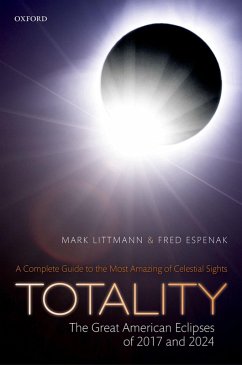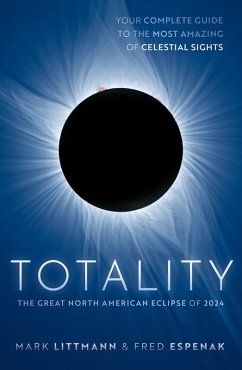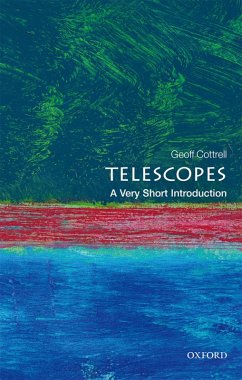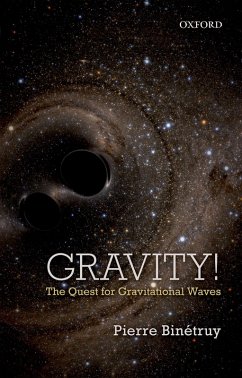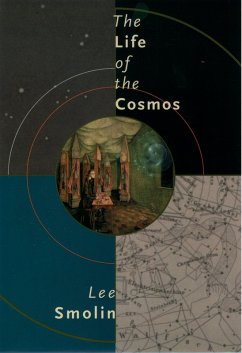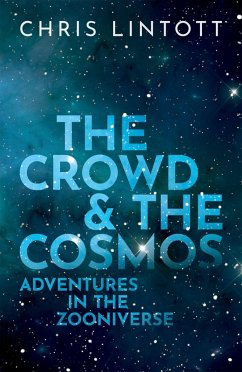
Totality -- The Great American Eclipses of 2017 and 2024 (eBook, PDF)

PAYBACK Punkte
6 °P sammeln!
Totality: The Great American Eclipses is a complete guide to the most stunning of celestial sights, total eclipses of the Sun. It focuses on the eclipses of August 21, 2017 and April 8, 2024 that pass across the United States. The U.S. mainland has not experienced a total solar eclipse since 1979. This book provides information, photographs, and illustrations to help the public understand and safely enjoy all aspects of these eclipses including: § How to observe a total eclipse of the Sun § How to photograph and video record an eclipse § Why solar eclipses happen § The earliest attempts to...
Totality: The Great American Eclipses is a complete guide to the most stunning of celestial sights, total eclipses of the Sun. It focuses on the eclipses of August 21, 2017 and April 8, 2024 that pass across the United States. The U.S. mainland has not experienced a total solar eclipse since 1979. This book provides information, photographs, and illustrations to help the public understand and safely enjoy all aspects of these eclipses including: § How to observe a total eclipse of the Sun § How to photograph and video record an eclipse § Why solar eclipses happen § The earliest attempts to understand and predict eclipses § The mythology and folklore of eclipses § The response of animals to total solar eclipses § The response of man to total eclipses through time § How scientists used total eclipses to understand how the Sun works § How astronomers used a total solar eclipse in 1919 to confirm Einstein's general theory of relativity § Weather prospects for the 2017 eclipse § Detailed maps of the path of totality for the 2017 eclipse and the eclipses of 2018 through 2024 § Precise local times for the eclipses of 2017 and 2024 (the next total solar eclipse to visit the U.S.) § Color and black-and-white photographs, diagrams, and charts to illustrate and explain total solar eclipses § Global maps of total solar eclipses from 2017 to 2045 and lists of total and annual solar eclipses from 1970 through 2070
Dieser Download kann aus rechtlichen Gründen nur mit Rechnungsadresse in A, B, BG, CY, CZ, D, DK, EW, E, FIN, F, GR, HR, H, IRL, I, LT, L, LR, M, NL, PL, P, R, S, SLO, SK ausgeliefert werden.




